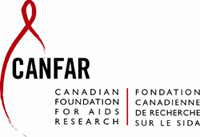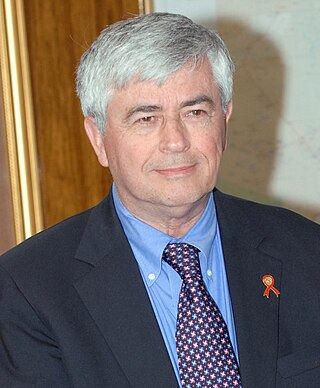Related Research Articles

HIV/AIDS originated in the early 20th century and has become a major public health concern and cause of death in many countries. AIDS rates vary significantly between countries, with the majority of cases concentrated in Southern Africa. Although the continent is home to about 15.2 percent of the world's population, more than two-thirds of the total population infected worldwide – approximately 35 million people – were Africans, of whom around 1 million have already died. Eastern and Southern Africa alone accounted for an estimate of 60 percent of all people living with HIV and 100 percent of all AIDS deaths in 2011. The countries of Eastern and Southern Africa are most affected, leading to raised death rates and lowered life expectancy among adults between the ages of 20 and 49 by about twenty years. Furthermore, life expectancy in many parts of Africa is declining, largely as a result of the HIV/AIDS epidemic, with life-expectancy in some countries reaching as low as thirty-nine years.

Tropical medicine is an interdisciplinary branch of medicine that deals with health issues that occur uniquely, are more widespread, or are more difficult to control in tropical and subtropical regions.

The United States President's Emergency Plan For AIDS Relief (PEPFAR) is the global health funding by the United States to address the global HIV/AIDS epidemic and help save the lives of those suffering from the disease. The U.S. allocation of over $110 billion marks the largest investment by any country has ever made towards combating a single disease. Launched by U.S. President George W. Bush in 2003, as of May 2020, PEPFAR has provided cumulative funding for HIV/AIDS treatment, prevention, and research since its inception, making it the largest global health program focused on a single disease in history until the COVID-19 pandemic. PEPFAR is implemented by a combination of U.S. government agencies in over 50 countries and overseen by the Global AIDS Coordinator at the United States Department of State. As of 2023, PEPFAR has saved over 25 million lives, primarily in sub-Saharan Africa.

The Harvard T.H. Chan School of Public Health is the public health school of Harvard University, located in the Longwood Medical Area of Boston, Massachusetts. The school grew out of the Harvard-MIT School for Health Officers, the nation's first graduate training program in population health, which was founded in 1913 and then became the Harvard School of Public Health in 1922.

amfAR, the Foundation for AIDS Research, known until 2005 as the American Foundation for AIDS Research, is an international nonprofit organization dedicated to the support of AIDS research, HIV prevention, treatment education, and the advocacy of AIDS-related public policy.

The Canadian Foundation for AIDS Research (CANFAR) is the only national charitable foundation that raises awareness to generate funds for research into all aspects of HIV infection and AIDS. Since inception in 1987, CANFAR has invested more than $26 million in research initiatives across Canada, and supported close to 575 distinct research initiatives. CANFAR is funded solely through the generosity of corporations, groups, and individuals across Canada.
Botswana is experiencing one of the most severe HIV/AIDS epidemics in the world. The national HIV prevalence rate among adults ages 15 to 49 is 24.8 percent, which is the third highest in the world, behind Lesotho and Eswatini. HIV/AIDS threatens the many developmental gains Botswana has achieved since its independence in 1966, including economic growth, political stability, a rise in life expectancy, and the establishment of functioning public educational and health care systems.

Myron Elmer "Max" Essex is the Mary Woodard Lasker Professor of Health Sciences, emeritus in the department of immunology and infectious diseases at Harvard University, chair of the Harvard T.H. Chan School of Public Health AIDS Initiative (HAI) in the department of immunology and infectious diseases, and chair of the Botswana–Harvard AIDS Institute in Gaborone, Botswana. Essex was one of the first to link animal and human retroviruses to immunosuppressive disease, to suspect that a retrovirus was the cause of AIDS, and to determine that HIV could be transmitted through blood and blood products to hemophiliacs and recipients of blood transfusions. With collaborators, Essex also provided the first evidence that HIV could be transmitted by heterosexual intercourse.
The history of HIV/AIDS in Australia is distinctive, as Australian government bodies recognised and responded to the AIDS pandemic relatively swiftly, with the implementation of effective disease prevention and public health programs, such as needle and syringe programs (NSPs). As a result, despite significant numbers of at-risk group members contracting the virus in the early period following its discovery, Australia achieved and has maintained a low rate of HIV infection in comparison to the rest of the world.

HIV/AIDS in Nigeria was a concern in the 2000s, when an estimated seven million people had HIV/AIDS. In 2008, the HIV prevalence rate among adults aged between 15 and 49 was 3.9 percent, in 2018 the rate among adults aged between 15 and 65 was 1.5 percent. As elsewhere in Africa, women are statistically more likely to have HIV/AIDS. The Nigeria HIV/AIDS Indicator and Impact Survey was the world's largest and presented statistics which showed the overall numbers were lower than expected. Antiretroviral treatment is available, but people prefer to take the therapy secretly, since there is still noticeable discrimination against people with HIV/AIDS.
With less than 0.1 percent of the population estimated to be HIV-positive, Bangladesh is a low HIV-prevalence country.

HIV/AIDS was first detected in Canada in 1982. In 2018, there were approximately 62,050 people living with HIV/AIDS in Canada. It was estimated that 8,300 people were living with undiagnosed HIV in 2018. Mortality has decreased due to medical advances against HIV/AIDS, especially highly active antiretroviral therapy (HAART).

Dr. Kamiar Alaei and his brother Dr. Arash Alaei are two Iranian HIV/AIDS doctors who were detained in Tehran's Evin prison from June 2008 through Dec 2010 and August 2011, respectively. Prior to their arrest, they developed harm-reduction programs in Iran and developed the program Global Health in the Middle East and Central Asia, an HIV/AIDS training program for regional health experts.

Pride Chigwedere, a Zimbabwean national, is a Harvard trained physician-scientist working in global health. He is most notable for leading a team of Harvard researchers who demonstrated that South African President Thabo Mbeki's AIDS policies led to more than 300 000 deaths. While South Africa's policies were condemned by many, Chigwedere's contribution was in developing and applying methods to quantify the impact of the policies thus demonstrating the calamitous consequences of AIDS denialism. Generalized, he developed an approach for evaluating public health practice and highlighted the need to develop a framework for accountability in public health. Drawing from the analogy with medicine, he has proposed the concept of public health malpractice to capture negligence that causes harm as a useful first step towards accountability in public health. A response to Chigwedere's work by AIDS denialists led by Peter Duesberg was initially published by the non-peer-reviewed journal Medical Hypotheses followed by a retraction because of poor quality of data, undeclared conflicts of interest, and potential effects on global health.

Wafaa El-Sadr is a Columbia University Professor and the director of ICAP at Columbia University, Columbia World Projects and the Center for Infectious Disease Epidemiologic Research (CIDER) at Columbia Mailman School of Public Health.

Agnes Binagwaho is a Rwandan Politician, pediatrician, co-founder and the former vice chancellor of the University of Global Health Equity (2017-2022). In 1996, she returned to Rwanda where she provided clinical care in the public sector as well as held many positions including the position of Permanent Secretary for the Ministry of Health of Rwanda from October 2008 until May 2011 and Minister of Health from May 2011 until July 2016. She has been a professor of global health delivery practice since 2016 and a professor of pediatrics since 2017 at the University of Global Health Equity. She has served the health sector in various high-level government positions. She resides in Kigali.
Martin T. Schechter is a Canadian epidemiologist recognized for contributions to research about HIV prevention and treatments, addiction research, and Indigenous health research. He is a professor and was the founding director of the School of Population and Public Health in the Faculty of Medicine at the University of British Columbia (UBC). Schechter received his Order of British Columbia in 1994 alongside BC's first Nobel Prize laureate Michael Smith and noted Indigenous artist Bill Reid. In 2022, Schechter was named as a Member of the Order of Canada.
Dr. June E. Osborn has served as an expert advisor on numerous urgent medical and health issues that include infectious diseases and their vaccines, virology, and public health policy as well as publishing research on these subjects. Osborn currently works on public health policy with the Centers for Disease Control and Prevention, The World Health Organization, The National Institutes of Health, and The Food and Drug Administration.
Sten H. Vermund is the Anna M.R. Lauder Professor of Public Health, and former Dean (2017-2022) of the Yale School of Public Health, and also serves as a Professor in Pediatrics at the Yale School of Medicine. He is a pediatrician and infectious disease epidemiologist focused on diseases of low and middle-income countries.
George Richard Seage III was an American epidemiologist and a professor at the Harvard T.H. Chan School of Public Health and Director of the school's Program in the Epidemiology of Infectious Diseases. Seage specialized in HIV/AIDS research with a focus on “the behavioural and biological aspects of adult and pediatric HIV transmission, natural history and treatment.” At the Boston University School of Public Health (BUSPH), Seage was an Adjunct Associate Professor of Epidemiology in the Department of Epidemiology, Director of the Interdisciplinary Concentration in the Epidemiology of Infectious Diseases, and Director of the Pediatric AIDS Cohort Study (PHACS) data and analysis center.
References
- ↑ "Harvard AIDS Initiative". 25 years leading the fight against AIDS. Retrieved November 8, 2024.